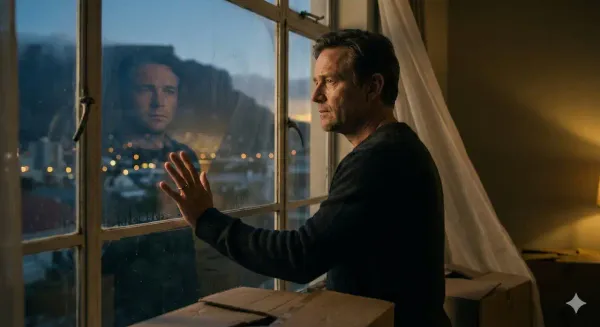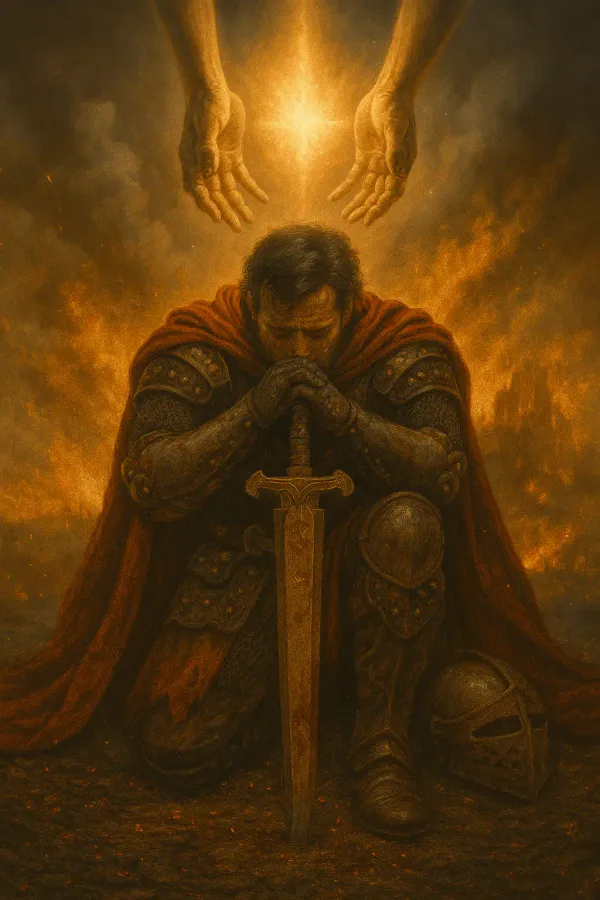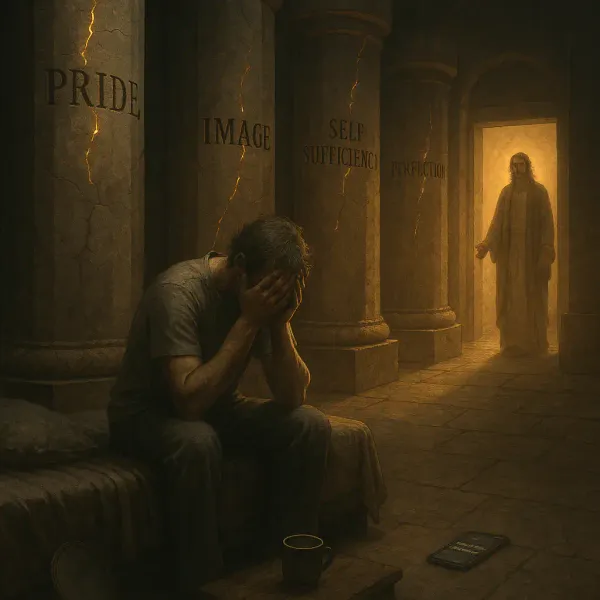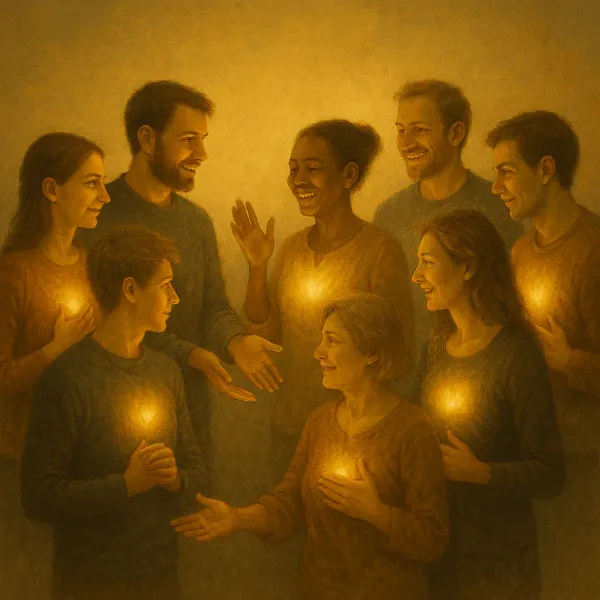The Sound of No One Knocking
She hasn’t spoken to anyone in four days. Not really. But her dinner story got 87 views. In a world of constant contact and growing loneliness, are we becoming less human—and calling it freedom? What if the ache we feel isn’t failure, but formation into something less than whole?
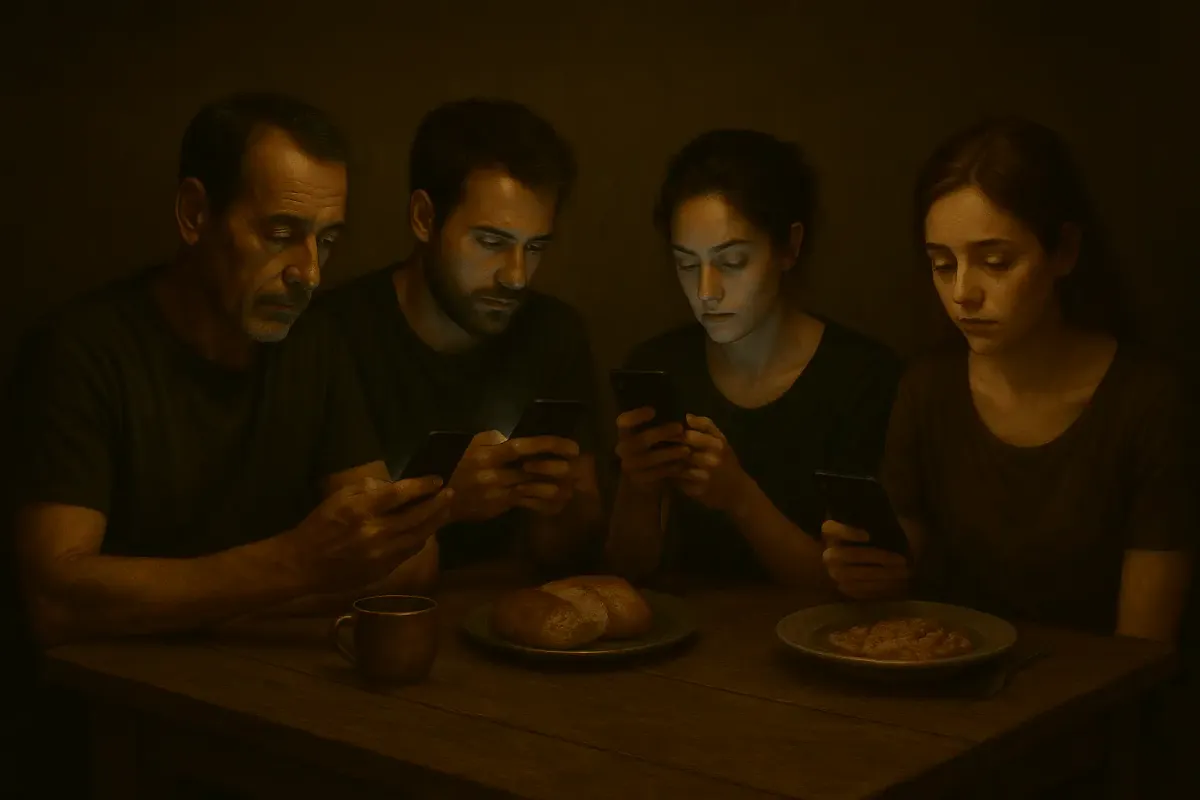
She hasn’t spoken to anyone in person for four days.
Not really spoken. A courier came yesterday, left the box at the gate.
The Uber Eats driver didn’t make eye contact. Just handed over the bag.
Her boss called, but it was video off, voice-only.
WhatsApp and Slack messages filled the silence between meetings.
She attended two Zoom calls this week, camera off, smile on.
She’s not sad. Not exactly.
She has a job. A one-bedroom apartment. A Wi-Fi password.
She orders groceries online.
She streams her worship playlist on Sunday mornings while folding laundry.
She sends laughing emojis into group chats.
She lives her life vicariously through reality shows.
She goes to the gym but zones others out with her earpods.
She posts stories of her dinner. The lighting is warm. The plate is clean.
But she’s alone.
Not alone like solitude. Alone like disintegration.
And somewhere deep inside, a question she can’t quite name begins to ache:
Was I made for more than this?
Loneliness …
She’s not an outlier.
She’s part of a growing majority.
A 2023 report from the U.S. Surgeon General found that nearly 1 in 2 adults experience measurable loneliness. In the UK, over 60% of adults under 35 report feeling isolated.
In Japan, more than 1.5 million people live in prolonged social withdrawal—a condition so common it has a name: hikikomori.
We work from home.
We shop from home.
We stream, swipe, click, and scroll from home.
We engage—but we do not encounter.
We have constant contact—but not true communion.
It wasn’t always this way.
When I was a child, before the screen became our window to the world—
neighbours knew each other by name.
Children played in the streets until the sky turned orange.
Fences were leaned on, not just locked.
It wasn’t perfect.
But it was human.
Now, many suburban streets feel like drive-through zones.
We wave from behind windscreens.
We check in with emojis.
We share “community updates” on apps—but rarely at the dinner table.
The shift is subtle. But it’s total.
We have redefined “life together” as life near others, not with them.
And not just in our streets. In our homes.
A family of four sits together on the couch.
Each with their own screen.
Each in their own algorithmic universe.
Different Netflix shows. Different social feeds. Different worlds.
They are breathing the same air.
But communion has left the room.
The meal table—if it exists—is lit by the glow of phones.
Conversations are half-hearted, punctuated by scrolling.
We say we’re spending time together, but the time is not shared.
We are beside each other. But not with each other.
Proximity without presence.
Familiarity without fellowship.
“It is not good for man to be alone.”
—Genesis 2:18
These were the words spoken before the Fall.
Before sin, before shame, before striving—there was solitude.
And God called it not good.
We often think of this verse in romantic terms.
But its weight is far more foundational:
Human life—untethered from shared presence—drifts into distortion.
Anxiety …
Loneliness may be the silence outside,
but anxiety is what happens inside,
when we carry what communion was meant to hold.
We were not made to carry life alone.
And yet—we do.
We don’t just live alone.
We think alone.
Decide alone.
Scroll, compare, calculate, self-soothe—alone.
And the world says this is strength.
That autonomy is freedom.
That if you just manage your thoughts well enough, journal hard enough, medicate precisely, inform and affirm yourself daily—you’ll be okay.
But we are not okay.
Quietly, daily, invisibly.
The weight isn’t always heavy. It’s just constant.
Beneath the silence of empty streets and solitary homes is another ache—
not just loneliness, but unrest.
Not the kind that screams, but the kind that pulses under the surface.
An ambient unease.
A sense that something is wrong—not catastrophically, but existentially.
Anxiety, in our age, is not an interruption.
It’s the atmosphere. We breathe it.
And it’s not just personal. It’s cultural. Spiritual. Formational.
But the fracture doesn’t stop with disconnection and unrest. It spills outward—into suspicion, hostility, ideological enmity.
Polarisation …
I grew up in apartheid South Africa. A nation split not just by laws, but by lenses— by who we were told to fear, to avoid, to see as “other.” Every part of life was shaped by it. Church. School. Streets. Language.
But at fifteen, everything shifted for me. My family moved to Sun City—an odd, experimental enclave in the so-called independent homeland of Bophuthatswana.
Unlike the rest of the country, there were no race laws there. And in this strange bubble people from all over the world lived and worked together—black, white, coloured, Indian, British, French, Italian, Canadian, German.
It was unpolished. Communal. Formative.
Later, as apartheid was beginning to unravel, I joined a local church with a rare community of musicians—black and white— who played together, worshipped together, joked and prayed and created together.
Called Friends First, they recorded an album called Dumisane Ma Africa.
I worked on the cover design with Malcolm (Mally) du Plessis, Victor Masondo, Lloyd Martin and Joe (JB) Arthur. (Here's Mally's recounting of the times and album)
It wasn’t just music. It was communion.
Not sameness—but fellowship.
Not ideology—but shared breath.
After the album launched, we gathered in a township for a braai—and I remember standing there, meat sizzling, music echoing from a nearby speaker, watching friends—some whose paths would’ve never crossed just years before—laughing, swapping stories, passing sauce.
And I remember thinking:
How many of these beautiful, collaborative relationships have we been robbed of?
How much love has ideology stolen from us?
How many echoes of the Kingdom were muted by tribal fear?
We had different languages. Different histories.
But we were together.
Not against something. For each other.
That moment never left me.
Because it showed me:
Polarisation doesn’t just divide. It robs.
It steals what could have been—
friendship, worship, wisdom, wholeness.
Loneliness.
Anxiety.
Polarisation.
They are not separate.
They are the same ache with three faces.
Disconnection from one another.
Disintegration within ourselves.
Division across our communities.
Together, they signal something deeper:
We are no longer sure what it means to be human.
Not according to the newsfeed.
Not even always according to the Church.
We are formed in a culture that tells us:
You are your preferences.
You are your productivity.
You are your political leaning.
You are what you feel, fear, or perform.
But the apostolic writers tell a different story.
In a world unravelled by empire, persecution, idolatry, and division—the early Church didn’t run to experts, strategies, or self-optimisation.
They became a body.
“They devoted themselves to the apostles’ teaching, to fellowship, to the breaking of bread, and to prayer.” —Acts 2:42
They didn’t optimise their spiritual lives.
They devoted themselves to each other.
Not weekly. Not casually.
Daily.
They shared tables.
Confessed sins.
Practised discipline.
Held each other in suffering.
Served the poor.
Prayed until the walls shook.
This was not convenience.
This was formation.
This was becoming human again.
Not through self-work—but through shared life in Christ.
And it was unreasonable.
But let’s be honest.
This triad—loneliness, anxiety, polarisation—doesn’t just live out there.
It lives here. In our pews. In our pulpits. In our group chats and leadership teams.
I’ve seen it.
And if I’m honest, I’ve contributed to it.
With my guardedness.
My silence when I should’ve spoken up.
My preference for safety over presence.
It’s hard to be trusting in a world that rewards distance.
Hard to open your life to people who might not understand it.
Hard to show up when it feels like no one sees you.
But I’ve been asking the Spirit to examine me.
To soften what’s grown cynical.
To reawaken what’s become numb.
Because change does not begin in institutions.
It begins in hearts.
And mine needs forming.
I’ve been opening up to a brother.
It’s been difficult, beautiful, scary.
“Can I really trust him?” Or is that the wrong question?
Is it not rather a trusting obedience to the One who lives eternally as a person in the eternal, relational trinity?
To become whole in a fractured world will require something unreasonable from us:
Presence. Submission. Consistency. Slowness. Patience. Meals. Forgiveness. Preferring. Understanding.
Not just “being in a church,”
but being in the Body.
Because in the Body:
Loneliness meets fellowship
—not just coffee, but covenant.
Anxiety meets belonging
—not self-help, but shared transformation.
Polarisation meets reconciliation
—not just tolerance, but new creation.
This won’t happen through content.
It happens through focussed, conscious, engaged proximity.
Through people who know your middle name, your shadow, your song.
Through faces across the table, not just @handles on a screen.
I want that again.
Not in theory, but in flesh.
Not as a visitor, but as a brother.
And maybe you do too.
